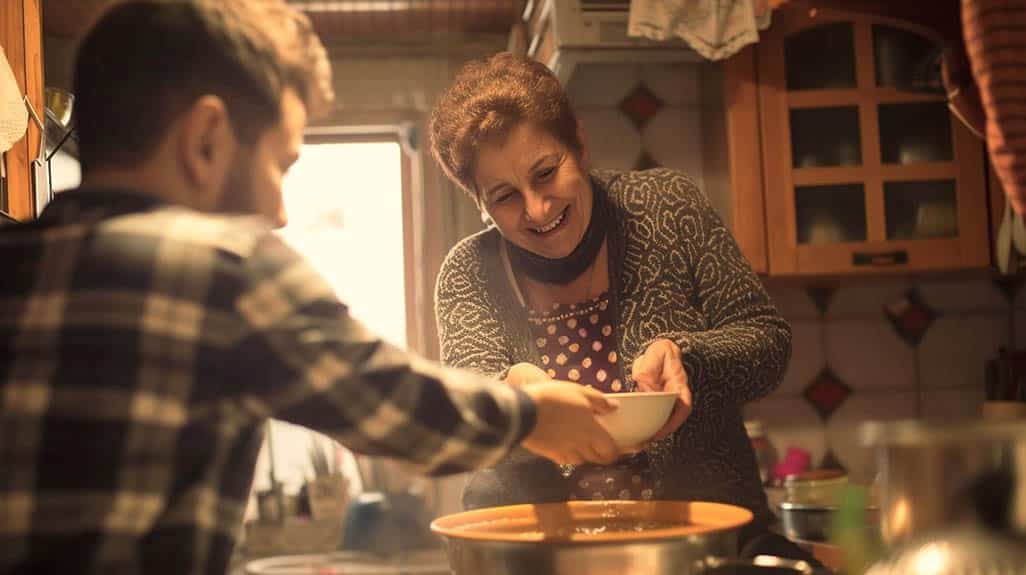Apparently, our island experiences the fifth highest amount of love in the world! Alix Norman explores what this means, and why statistics might not give the whole story
In the early 2010s, Gallup surveyed the entire planet on the subject of love. How many of you, it asked, ‘had experienced love for a lot of the day yesterday?’
The world, Cyprus included, answered.
The Philippines ranked right at the top, with 93 per cent of those surveyed agreeing they’d felt love. Rwanda came in second, with 92 per cent, and Puerto Rico and Hungary took third and fourth, with 90 per cent and 89 per cent respectively.
At the other end of the scale, just 29 per cent of Armenians and 32 per cent of Uzbekis said they’d experienced love on the previous day. And, somewhere in the middle, 81 per cent of Greeks, 78 per cent of Turks, and 74 per cent of Brits were feeling the warmth.
Cyprus, meanwhile, ranked fifth!
Yup, out of 136 nations, our island came well inside the Top 10: 88 per cent of the roughly 1,000 respondents saying that they had experienced love for a large part of the previous day.
Granted, this survey took place before the haircut; our situation may well have changed since then! But still, if you look closely at the data, it’s hard to see what’s driving any of the results.
Money can’t buy you love: nations with higher and lower GDPs were dotted all over the shop. Continental location wasn’t important: the top five countries span the Far East, Africa, South America, and Europe. Neither was faith: nations that are predominantly Muslim or Catholic or Orthodox (or any number of other religions) are spread up and down the rankings.
Age might play a part – countries with a youthful population (such as Uganda and Cambodia) fared slightly better. And the weather might have an effect – other than Hungary and Canada, all of the nations in the top 25 enjoy a relatively balmy climate. (It’s certainly easier to feel loved and loving when the sun’s shining – and, perhaps, more skin is on show!)
Interestingly, nine of the ten lowest-ranked countries are post-Soviet states – nations where residents maintain that quality of housing, healthcare and education have actually deteriorated since the dissolution of the USSR.
Still, the happy fact remains: Cyprus was fifth! And quite how that happened, we don’t quite know…
Sure, we’re the Island of Love. But Aphrodite’s a myth, her temples and acolytes long gone. Yes, it’s a romantic place to visit (Beyond Weddings suggests we’re Europe’s second most romantic country for a destination marriage). Yet those of us who live here are usually more concerned with paying the rent than admiring the sunsets.
And family isn’t a deciding factor either: countries where the family bonds are particularly strong (such as Italy, Greece, Mexico, India, and Japan) don’t necessarily feel more love than nations where kin is less consequential.
Perhaps it comes down to the way the question was phrased. After all, what is love? What makes us feel love? And is it really that important?
“I think the question is fairly ambiguous,” says Limassolian architect Petros Theodorou. “It’s asking if you experienced love. What kind of love? I mean, I felt my dog loved me yesterday. And my mum still wants to cook for me every day; that’s love isn’t it?
“This,” he notes, “is a question that could mean many things to many people, depending on how you were raised.”
In 2015, there was a study on global priorities. What do you want most in life, survey participants were asked. There was a notable difference between Occident and Orient.
Here in the west, where individualism and romanticism abound, ‘love’ scored highest. The notion of ‘falling in love’ and finding a ‘soulmate’ informs our fictional narratives; our books, music, and films. In western culture, we place great emphasis on emotional fulfilment and personal choice in love.
But in the east (where love is often viewed within the context of duty, honour, and family), ‘love’ ranked sixth – well below priorities such as ‘health’, ‘spiritual progress’, and ‘my own family’.
“I have never seen my grandchildren, but I love them,” says Shanthi Bandara, a Sri Lankan domestic worker who has lived in Nicosia for the past 12 years. “I do not love my job, but I am happy I send money to my family; this is my love.”
Granted, dividing the world into east and west certainly doesn’t allow for more nuanced perspectives. Many indigenous tribes connect love to the land and ancestral traditions. And a number of African societies see love as an expression of community and family relationships.
Clearly the original question, ‘Did you experience love for a lot of the day yesterday?’, is open for interpretation. What love means to one person may differ wildly from what it means to another – even within the same country, community, or household…
“I think I experience love when I’m fixing the car or paying the bills,” says Manos Gregoriou. “These are boring things, but it’s how I show my family I love them. I might not say ‘I love you’ to my wife a lot, but I feel it when I see she’s had a hard day at work but has still cooked for us. Or when she gets up early to take the kids to school.”
Marina, his wife, had a different interpretation of ‘experiencing love’.
“When Manos and I first married, he would leave me notes saying ‘You are amazing’ or ‘I love you so much’,” she reveals. “He never let me leave without a hug and a kiss; he called me ‘baby’ and ‘my darling’. That made me feel very loved.
“Now, he doesn’t do these things. I still know he loves me, but I don’t feel it so much. I think age and time change how we experience love. Perhaps we should talk about this…”
Maybe the true value of the Gallup survey lies not in the actual results, but in the conversations it provokes. After all, Cyprus may rank fifth on the planet in terms of experiencing love, but it’s also one of the loneliest countries on earth.
Somehow, those statistics don’t seem to correlate. Please discuss…








Click here to change your cookie preferences